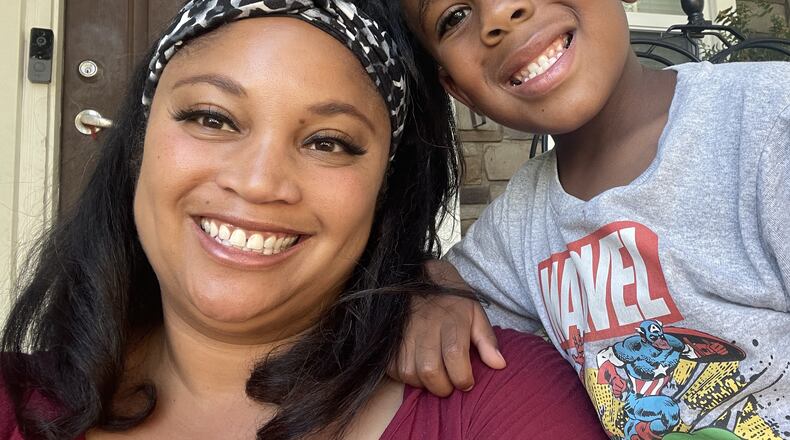“We want to represent the city and low-income population of the region,” said Stich, a former public school principal who has been working on the school for the past two and a half years.
Raya Anderson, whose son, Amir, will be attending kindergarten at The Greater Dayton School next year, said she thought long and hard about what would be the best choice for her son, who is adopted.
Amir has developmental disabilities due to drug and alcohol abuse by his biological parents while he was in the womb. He needs additional support for that reason, Anderson said, and one of the biggest draws to The Greater Dayton school was the wraparound services in the building. Amir will be able to attend occupational therapy and mental health treatments in his school building, Anderson said.
“As a busy working mom, that’s amazing to me, and that is a huge difference maker,” she said.
The school will continue to accept students next school year and will move current students up the grade levels, adding grade levels as they do so up until eighth grade. There are plenty of high schools in the area that serve low-income kids well, Stich said previously.
He noted the Greater Dayton School spends around $30,000 per pupil for their students, while low-income districts generally spend about $8,000 per students, and wealthy districts spend up to $25,000.
The school will take EdChoice dollars, which are about $5,500 for each student who lives in an area with a school rated D or F, or for families who make under a certain amount, which generally qualifies them to be on Medicaid. The remaining money will be kicked in from Kids & Community Partners.
Parents will pay about $375 for one student for the year, or $600 for two students, or $750 for three or more students.
The Greater Dayton School eventually will be located at Deeds Point off Webster Street, just north of downtown. The group has started site work, but the building won’t be ready by the start date. In the first year, students will be attending school in a building near Sinclair Community College. The school building will open next school year.
The school will include extracurriculars such as sports and clubs. Students learn together in classrooms where teachers can help students individually. The innovative model also means meals made by a chef and teachers seated with students, an 8 a.m. to 5 p.m. school day, and lessons in financial literacy and other life skills.
Stich said the school plans to partner with a research firm to see how the students progress through the school and into their later years.
“Part of that research would be identifying what careers our students choose when they join the workforce around age 21,” Stich said, adding it would include if they stay in Dayton or go elsewhere.
Credit: JIM NOELKER
Credit: JIM NOELKER
About the Author


